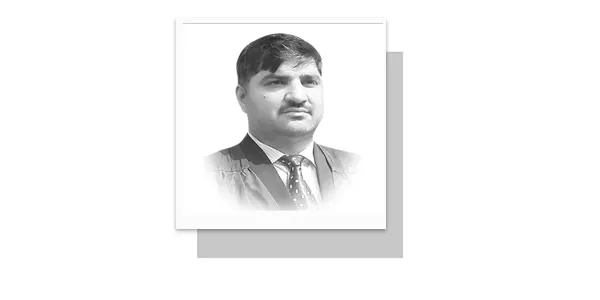THE broad analysis of Indo-Pakistan conflict from Macro (international and regional), Meso (national) and Micro (society and individual) levels can be briefly highlighted here.
From Macro (international) perspective, it is revealed that the Indian bellicosity has gained international notoriety as reflected by killing of Sikh community leader Hardeep Singh Nijjar by Indian-spy agency RAW and alleged involvement of Indian Home Minister Amit Shah and National Security Advisor Ajit Kumar Doval.
Now in case of Pakistan, India blatantly violated international law pertaining to peace by infiltrating into its territory.
Article 2(4) of the UN Charter, signed in 1945 in San Francisco, spells out that “all Members shall refrain in their international relations from the threat or use of force against the territorial integrity or political independence of any State, or in any other manner inconsistent with the Purposes of the United Nations”; and the UNGA Resolution 3314 adopted in 1974.
Second, it also breached diplomatic norms to negotiate the mutual dispute on a table; and also declined the generous offer of her friends to mediate between India and Pakistan.
The latter time and again offered diplomatic and pacific way to sort out the solution of the issue and also to investigate the Pahalgam issue occurred on April 22, 2025.
In addition, the Modi’s strategic policy earned a shameful recognition for his country, its people and military at global stage.
India is spending the lion’s share of its budget on defence and the largest purchaser of arms from the US, Russia, France, Israel and other countries.
Indian defence expenditure is greater than the aggregate defence expenditure of the rest of South Asian states.
Despite that India failed to combat Pakistan’s air defence system.
In addition, it is also intelligence failure of RAW to underestimate Pakistan’s conventional and air defence capabilities.
Moreover, Modi’s regime also misconstrued the public pulse in Pakistan and the resentment of people of Pakistan against government was considered as a divided nation; while the people of Pakistan slapped on the face Modi’s regime and RAW.
The denial of seeking diplomatic and peaceful solution of issue exposed India’s real face to global community as a liar for being failed to provide an iota of evidence of Pakistan’s involvement in Pahalgam incident.
At regional level, Modi’s chauvinism weakened the India’s status among the SAARC members; and lost its big-brother role in South Asian strategic environment.
Its non-diplomatic policy also alienated the people of Bangladesh and other communities in South Asian countries.
At the national level, adhering to the Cold Start Doctrine, India crossed international borders and targeted civilian homes and religious sites, killing several civilians inside Pakistan through Operation ‘Sindoor.
’ However, Pakistan’s defensive retaliation under ‘Operation Bunyanun Marsoos’ turned the dreams of the Indian political and military leadership into a nightmare and buried its notorious offensive military doctrine in humiliation.
Moreover, the Indian military leadership’s failure to counter Pakistan’s defensive operations represents a strategic and military setback for India.
It also highlights that India is squandering the hard-earned money of its impoverished citizens on defence rather than investing in the welfare of the billions living in poverty across Indian society.
RAW also gained defamation in people’s eyes.
The Indian Army was demoralized and also divided on religious grounds.
Several Sikh military officers refused to take guns against Pakistan.
Moreover, the leadership of Khalistan also proclaimed its solidarity with the people and government of Pakistan.
Modi also faced severe criticism and humiliation on the floor of the house by the opposition parties.
This was severe blow to Modi’s regime.
At Micro (society and individual) level, Modi’s policy split the society into extremist Hindus, moderate Hindus and other communities through its notorious Hindutva Doctrine.
His policy has drastic impact on Indian society because it alienates Hindus from the rest of religious communities.
He creates abhorrence among the hearts and minds of common Indians against each other.
It also raised question on the democratic culture of Indian.
Simply, Indian offensive strikes have proved to be a strategic miscalculation and for that it has paid the price in all respects, gaining nothing except local, national, regional and global humiliation.
This failure not only undermines India’s credibility but also serves as a cautionary tale about the consequences of aggressive policies devoid of diplomacy and respect for international norms.
—The writer is a security expert and Chairman, Department of Political Science, Islamia College University Peshawar. (amir@icp.edu.pk)


















